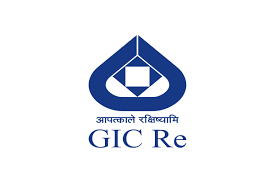The reinsurer’s CMD has communicated to the Department of Financial Services several times to keep GIC Re separate from GIPSA
With about 500 employees GIC Re is making good profits. The attrition rate has increased nowadays owing to attractive pay packets offered by rivals and others. If pay parity is made with loss-making members of GIPSA, then the employee morale will go down which, in turn, would result in higher attrition and loss of business,” a senior GIC Re official .
Chennai:
Making listed national reinsurer General Insurance Corporation of India (GIC Re) a member of the General Insurance Public Sector Association (GIPSA) will result in negative market sentiment, employee dissatisfaction and attrition, said the GIC Officers Association (GICOA).
“GIC Re and AIC maybe included as a member of GIPSA in line with other 4 PSGIG and all cost and expenses of the Association may also be equally shared by all six members member companies on the basis of the approval by the Governing Board of GIPSA,’’ said an order from the Department of Financial Services(DFS) on last Monday.
The move by the DFS has come at a time when GIC Re had already expressed its desire to the DFS to be treated separately from the rest of PSU general insurers in some areas particularly deciding wages and allowances of its employees.
GIC Re, which has over 500 employees, is the third largest Asian reinsurer and has different business priorities and financial capacities. To compete globally, it needs to have a suitable manpower system based on higher incentives and should not be clubbed with the other PSU general insurers in the matter of HR, GIC Re has argued.
GIC Re’s business is entirely different – business-to-business (B2B) or insurer for the insurers from the four government owned primary insurers which is primarily business-to-consumer (B2C), said the GICOA.
The GICOA is opposed to the recent decision of the DFS to make GIC Re a member of GIPSA which was originally a body of four government-owned general insurers – New India Assurance, United India Insurance, Oriental Insurance, and National Insurance.
“Investors often consider the financial health and performance of associated entities when evaluating a company’s prospects. If GIC Re is seen as closely aligned with underperforming insurers, it could raise concerns about its own risk exposure. Non-listed companies typically have less public financial disclosure compared to publicly listed ones. Investors may perceive this lack of transparency as a risk factor, as they have limited access to financial information for the GIPSA member companies,” GICOA told the Indian government.
It may be noted, stock market discounts the value of its shares in the case of public sector companies.
The GIC Re is a listed company in India. The company hit the market with an issue price of Rs 912. The stock on Monday closed at Rs 226.15.
“Our management has been actively communicating its stance on maintaining its separate identity from GIPSA and has expressed its desire to end any associations it may have with GIPSA. Such communications from the CMD (Chairman-cum-Managing Director) of GIC Re can be seen as an effort to address concerns and clarify the company’s strategic direction,” GICOA said.
The reinsurer’s CMD has communicated to DFS several times to keep GIC Re separate from GIPSA.
The reason being different business practices and challenges from those of GIPSA member companies, GICOA told DFS.
“With about 500 employees GIC Re is making good profits. The attrition rate has increased nowadays owing to attractive pay packets offered by rivals and others. If pay parity is made with loss-making members of GIPSA, then the employee morale will go down which, in turn, would result in higher attrition and loss of business,” a senior GIC Re official told IANS.
According to the official, till the last wage revision, GIC Re was treated like the Life Insurance Corporation of India (LIC). However during the last wage revision, it was clubbed with GIPSA members.
Three out of four GIPSA companies are unlisted – only New India Assurance is listed – and are in dire financial conditions, the official added.
The other reasons listed by GICOA for its opposition to be part of GIPSA are: lack of homogeneity, divergent business practices, distinct regulatory compliance, complexity in convergence, distinct competitive landscape, reinsurance of diverse sectors, geographical and organisational disparities and others.
with inputs from IANS

